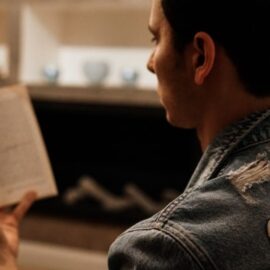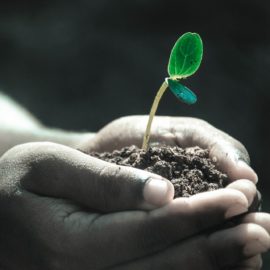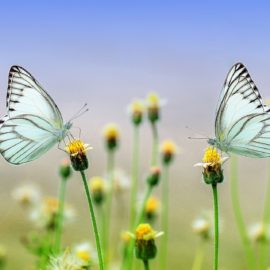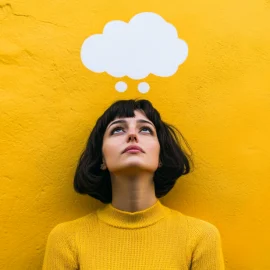
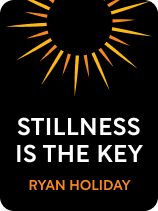
This article is an excerpt from the Shortform book guide to "Stillness Is the Key" by Ryan Holiday. Shortform has the world's best summaries and analyses of books you should be reading.
Like this article? Sign up for a free trial here.
Why is it important to practice stillness of the body? How does practicing stillness enrich your life experience and improve your well-being?
Your body carries you through this world, so it’s important you take good care of it. This doesn’t just mean exercising, sleeping, and eating healthy. It’s also important to practice stillness of the body by optimizing your space, practicing healthy habits, and using your body to pursue enriching activities.
Here are some ways to practice stillness within your body and physical space.
Create Order to Optimize Your Space
According to Ryan Holiday, the first step in cultivating stillness of the body is to optimize your immediate environment. He says you should start with building a daily routine and following it. Ritualistic behavior enriches your life experience, he says. Ritual isn’t about “superstition,” it’s about the psychological effects it has on us. When you have a general routine, you free your mind from having to make choices every day about what to do, eat, wear, and so on, at any given time. Limit the amount of decisions you have to make every day by making your life orderly and predictable.
Next, Holiday says you should declutter your physical space. Hoarding material possessions enslaves us, he says, because those possessions come with more responsibility and the fear of losing them. And when your identity is tied up with your stuff, losing that stuff can be disastrous for your mental state and interrupt your stillness. The more you own, Holiday says, the more cluttered your space and your mind will be.
| Decluttering Your Home In The Life-Changing Magic of Tidying Up, Marie Kondo outlines a straightforward process for clearing clutter from your home. Kondo says to sort all of your items into these five specific categories: clothing, books, papers, miscellaneous items, and sentimental items. Go through the piles in that order, beginning with clothing. For each pile, pick up every item and ask yourself, “Does this spark joy?” If it does, set it aside to keep. If it doesn’t, thank the item for being a part of your life and put it into a pile to discard or donate. By acknowledging that each discarded item has performed a service in your life (and showing gratitude for it) you release the guilt of letting it go, which brings a sense of stillness to your mind while also creating order in your home. After you’ve gone through every item in every pile, organize everything in your “keep” pile neatly in your home, and get rid of everything in your “discard” pile. |
Slow Down and Take Care of Yourself
In addition to treating your space with respect, it’s crucial that you treat your body with reverence, and that means giving it the rest and nourishment it needs. Slowing your body down, Holiday says, will allow your mind to slow down too.
Too many people are wrapped up in being “busy” all the time, and many place too much importance on their jobs. Holiday says to remember that you are not your job—learn to separate from it and prioritize other things. Don’t fall prey to the “glorification of busy.” That’s a life of servitude.
Holiday reminds us that time is the most important thing we have in life. In fact, time is literally your life. For every task you do, remember that you’re trading a piece of your life for it. Ask yourself if each to-do is worth trading some of your life away, and if it’s not, then say no.
(Shortform note: If you need help getting out of that “glorification of busy” mindset, Greg McKeown’s book Essentialism explains how to “do less but better.” His process involves identifying what’s actually essential on your to-do list. He says when you try to do too many things, you end up doing none of them well, and your priorities become displaced. This means you trade the more important and meaningful activities in life—like spending time with family and getting rest—for someone else’s priorities.)
Holiday also encourages you to:
Take walks: Holiday says the philosopher Søren Kierkegaard believed that sitting still would lead to illness and that moving the body was necessary for keeping the mind agile as well. You should regularly go out and walk with attention and intention, slowly and deliberately. Notice the sights, smells, sounds, and so on, and let your stresses fade away as you do.
(Shortform note: Although the idea of moving your body to cultivate stillness may seem counterintuitive, Buddhists have long practiced various forms of “moving meditation.” Holiday’s example of walking slowly and mindfully is essentially walking meditation. Other forms of moving meditation include yoga, as well as tai chi and Qigong, which are both slow, graceful martial art forms. The reason moving the body can encourage stillness of mind is because your mind is kept from wandering by focusing it fully on your movements.)
Seek Solitude: Solitude and silence help cultivate stillness. You must find alone time. Find time and space to physically be alone on some regular basis. Holiday acknowledges that it can be hard to find the time or afford to go away somewhere, but you should prioritize it as much as you can. Even if it’s just getting up earlier, before others in your household wake up, find the time. (Shortform note: If finding alone time is hard, think about how you schedule other tasks in your day and pencil your alone time in among them. Use your calendar or another scheduling tool to block off small amounts of time as you plan your day or week, and commit that time to a restful and solitary activity.)
Stay well-rested: Prioritize getting enough sleep. It’s how we recharge ourselves and keep our bodies healthy and minds clear. (Shortform note: Americans in particular have earned a global reputation for overworking and not getting enough rest and sleep. In most parts of Europe, rest is highly valued. In France, for instance, most workers take off the entire month of August. And in Spain, a midday siesta (nap) is practiced by almost half of the population.)
Spend Your Time Wisely
Finally, Holiday says you should consider carefully what you do with your spare time. How you carry yourself through this world and what you devote yourself to will affect your whole life experience. To encourage stillness throughout your body, mind, and soul, you must fully engage with the world in some meaningful way.
Holiday says you can become more engaged with the world by taking up hobbies. He says to devote some regular amount of time to artistic or intellectual pursuits. Doing this puts your body and mind in harmony, and puts you in a state of “flow,” which is essentially a state of stillness. Don’t spend your downtime binging on TV and video games. Instead, spend your free time improving yourself.
Lastly, Holiday says you should avoid escapism. Too many people try to constantly run from one thing to the next, filling their minds with junk, to hide from their deeper thoughts. Some people even try to physically flee their problems by going somewhere else, through constant travel for instance. Holiday cautions that you can’t escape despair when it’s in your own mind. An exciting vacation may temporarily suppress it, but it’ll be there when you get back, and worse. He says you need to be still and let it surface so you can examine it. Don’t try to escape your life—create a life you don’t need to escape from.

———End of Preview———
Like what you just read? Read the rest of the world's best book summary and analysis of Ryan Holiday's "Stillness Is the Key" at Shortform.
Here's what you'll find in our full Stillness Is the Key summary:
- Why stillness is not just the absence of motion
- How to cultivate stillness in your mind, body, and soul
- Why you should start ignoring the news



